Happy Friday! Like U.S. Olympic track star Noah Lyles, one of your Morning Dispatchers was recently afflicted with this summer’s strain of COVID-19. Unlike Noah Lyles, she was not putting in Bronze-medal-worthy work between coughs.
Quick Hits: Today’s Top Stories
- In a press conference at his Mar-a-Lago hotel on Thursday, former President Donald Trump agreed to debate against Vice President Kamala Harris this fall, after previously backing out of a debate that had originally been scheduled with President Joe Biden. ABC News announced yesterday both campaigns had settled on a September 10 debate on the network, which will be moderated by David Muir and Linsey Davis. Trump also proposed two additional debates—one on Fox News on September 4 and another on NBC News on September 25. Harris has not yet agreed to either the Fox News or NBC News debate, though NBC News reportedly remains in discussions with the Harris campaign.
- Meanwhile, Vice President Harris, who has not done a sit-down interview since President Joe Biden withdrew from the race, said Thursday that she wants to schedule an interview “before the end of the month.”
- Ukraine’s cross-border incursion into Russian territory continued Thursday, after Ukrainian troops mounted a surprise attack into Russia’s Kursk oblast on Tuesday. As many as 1,000 Ukrainian troops have reportedly marched nearly 20 miles into Russian territory in what appears to be Ukraine’s most significant cross-border raid since Russia’s 2022 invasion. Despite evidence on Thursday showing a Ukrainian presence in villages deeper into Russia, the Russian Defense Ministry claimed to have “thwarted” Ukraine’s raid and inflicted hundreds of casualties. Mykhailo Podolyak, an adviser to Ukrainian President Volodymyr Zelensky, said Thursday that Ukraine is hoping the offensive shifts how Russians view the war. “This increases the cost of the war for Russia quantitatively,” he said. “More armored vehicles have been destroyed, the Russian Federation has lost territories, and there have been more casualties. Will this affect how they perceive this war? Undoubtedly.”
- Russian prosecutors on Thursday sought a 15-year prison sentence for Ksenia Khavana, a Russian-American woman accused of treason after donating money to a pro-Ukraine charity. Russian authorities arrested Khavana, a 33-year-old ballerina and naturalized U.S. citizen, in February after she contributed $51.80 to Razom, a U.S.-based non-profit that delivers aid kits to Ukraine. Prosecutors allege Khavana, who pleaded guilty to the charges, committed treason by “proactively” donating money that was “used to purchase tactical medical supplies, equipment, weapons, and ammunition for the Ukrainian armed forces.”
- The U.S., Qatar, and Egypt issued a joint statement on Thursday calling on Israel and Hamas to join another round of ceasefire-for-hostage deal negotiations on August 15. Israeli Prime Minister Benjamin Netanyahu agreed to send a delegation to resume the talks, which seemed likely to stall after the targeted killing of Hamas political leader Ismail Haniyeh last week. Israel, meanwhile, is awaiting a signaled attack from Iran following the assassination on Iranian territory, for which Israel has not officially taken responsibility.
- The Department of Labor reported Thursday that weekly jobless claims unexpectedly fell during the week ending August 3, calming recessionary fears after last Friday’s lackluster unemployment report. Unemployment benefits claims dropped to 233,000 last week, down 17,000 from the week prior and lower than economists’ estimate of 240,000. U.S. market indices—which crashed on Monday before partially bouncing back on Tuesday—seemingly reacted positively to the news on Thursday as the Dow Jones Industrial Average gained nearly 700 points.
- Tropical Storm Debby made its second U.S. landfall early Thursday morning, battering the Carolinas with 50-mile-per-hour winds and more than a foot of rain as it continues to move up the Atlantic coast. Debby—which struck Florida earlier this week as a Category 1 hurricane—has caused at least seven deaths, including one from a tornado in North Carolina. Areas along the eastern seaboard from Virginia to New England could face flash flooding and other extreme weather in the coming days, though the storm is expected to weaken as it moves northward.
Federal Judge Rules Google is a Monopoly
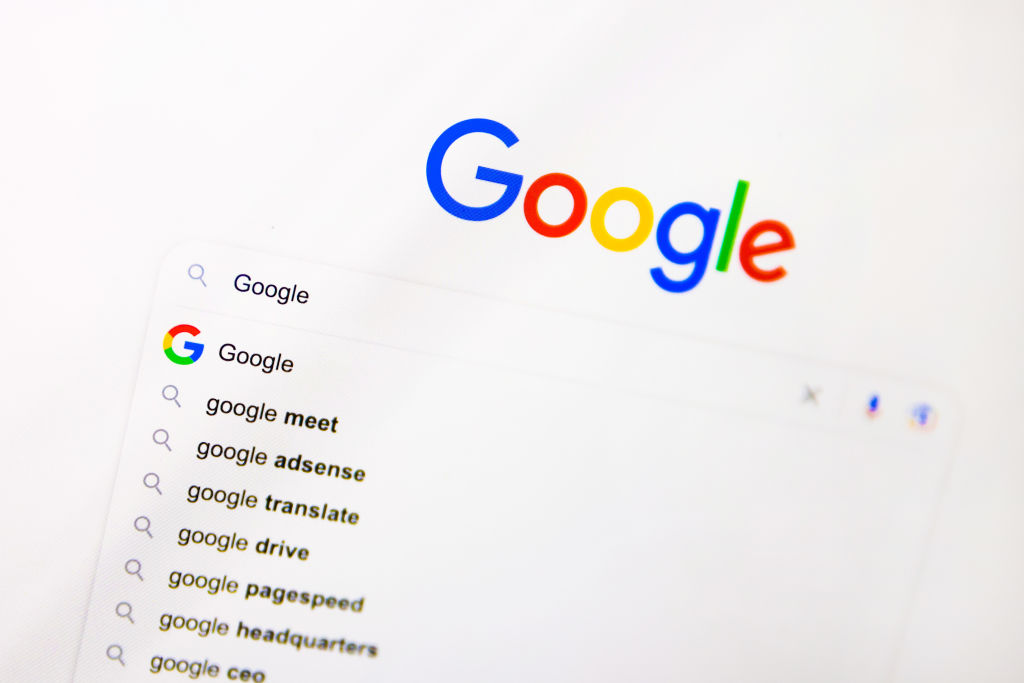
How does New Zealand Olympic triathlete Ainsley Thorpe recover after swimming in the polluted, bacteria-abundant Seine River in Paris? By downing a Coke. “There’s no harm in drinking a Coke after a race,” Thorpe said. “If you Google it, it says it can help.”
There are lots of ways to find information on the internet. But among the various search engines—Bing, Yahoo, or even DuckDuckGo—only Google has become a verb.
On Monday, a federal district judge ruled that Google, in seeking to maintain its position as internet users’ most sought-after search engine, had violated United States antitrust law. Though the decision is downstream of a growing bipartisan consensus in favor of trust-busting, opponents argue the antitrust frenzy is stifling free-market competition and harming consumers.
The Trump administration’s Department of Justice (DOJ) filed a lawsuit against Google in October 2020, claiming the tech giant had violated antitrust laws. The legal challenge continued under the Biden administration’s DOJ, and every state except Alabama—plus Washington, D.C., Puerto Rico, and Guam—joined either the DOJ’s lawsuit or a similar, state-led challenge, both of which were heard and decided together by U.S. Federal District Court Judge Amit Mehta.
And in a 286-page opinion issued earlier this week, Mehta ruled Google’s search engine violated federal antitrust law. “Google is a monopolist,” he wrote. “And it has acted as one to maintain its monopoly.”
There’s no question that for internet queries, Google is the place consumers go—and by overwhelming margins. Mehta asserted in his decision that Google’s market share for search queries is at or above 90 percent. Its next closest competitor, Bing, apparently fields less than 6 percent of queries.
However, opponents of Mehta’s decision argue Google’s market share isn’t evidence of a monopoly—only that consumers overwhelmingly prefer its search engine. “It’s not hurting consumers, right? We don’t see these higher prices in [searches],” said Jessica Melugin, director of the Center for Technology and Innovation at the Competitive Enterprise Institute. “Where’s the harm?”
Mehta acknowledges that some of this dominance is owed to “shrewd business decisions” that have improved the product—not inherently anticompetitive behavior. “That may be a problem for competitors,” Melugin told TMD, “but that’s not an antitrust harm that merits antitrust intervention.”
At the heart of the original complaint, and indeed, the decision, are contracts that make Google’s search engine the “default” engine. Buy a new iPhone, iPad, or Macbook laptop? Apple’s Safari browser is set automatically to Google. Buy an Android? A Google search bar comes pre-installed on the device. In 2022, Google paid Apple in the neighborhood of $20 billion to make its product the default search engine on Apple-manufactured devices.
It’s not simply that it has the contracts—it’s the value those contracts provide to Google.
“According to the decision, Google used these exclusive contracts to drive search volumes,” Will Rinehart explained in his Techne newsletter yesterday, “which in turn drove user data that helped improve search quality to the detriment of its competitors.”
But is this anticompetitive? “Consumers are getting what they want,” said Melugin. “And consumer benefit and welfare should be the cornerstone of any antitrust consideration.” In fact, Apple and Mozilla—which also has a default search engine contract with Google for its Firefox browser—have occasionally reviewed Google’s search engine quality and found it to be superior to the field.
On Advisory Opinions, Sarah argued the decision was “bonkerstown nonsense”—not because of Mehta’s reasoning, but because of a fundamental flaw in written antitrust law. “The Sherman Antitrust Act, I think, is an unintelligible principle from Congress that you can punish companies for trying to prevent their competitors from putting them out of business,” she said.
Google has already said it will appeal the decision. “This decision recognizes that Google offers the best search engine, but concludes that we shouldn’t be allowed to make it easily available,” said Kent Walker, Google’s president of global affairs.
That process will also delay any remedies Mehta might impose that could change how Google—or other tech giants under the antitrust microscope—operate. Mehta could order Google to dismantle parts of its internet search business that enable its so-called monopolization. There may also be changes to the practice of paying to make search engines the default platform for certain hardware.
But the latter change may not actually change anything about Google’s dominance, as Will explained yesterday:
Both the DOJ’s complaint and the decision rest upon the notion that search engine defaults afford extraordinary economic power. Some expect that remedies will change these circumstances, but shifting defaults doesn’t always mean people will stay with that choice. In fact, there are only some cases where setting the default can move markets. As one study summarized, defaults tend to be powerful only when options are numerous, have complex attributes, or are difficult to distinguish. That’s not exactly what’s going on here; people know the difference between Google and Bing.
Even still, the ramifications of the ruling could be significant. “It’s going to change the web. It’s going to change big business,” said Matt Stoller, director of research at the American Economic Liberties Project. “I think every [major] CEO in the country is going to get a memo saying, ‘Here’s what this means for our business.’ … I think you’re going to see it really bring monopolization law forward.”
But Melugin compares this case to United States v. Microsoft—a 2001 decision that branded Microsoft a monopolist over the web browser industry—but didn’t spark a new era of antitrust challenges. “I don’t think it’s a revolutionary, neo-Brandesian expansion of antitrust law,” said Melugin. “I think it could be harmful if this was upheld, but I don’t think it’s going to change antitrust law, fundamentally.”
But, it’s no secret that antitrust law is having a moment, as we’ve reported in recent months. The Biden administration has made antitrust enforcement a key part of its agenda. In 2021, the DOJ successfully blocked a merger between publishing companies Penguin Random House and Simon & Schuster. Just last March, the DOJ brought an antitrust case against Apple—alleging the company has illegally monopolized the smartphone market—and in May, it brought an antitrust suit against Ticketmaster. Meanwhile, Federal Trade Commission Chairwoman Lina Khan—nominated by Biden in 2021—has filed a smorgasbord of antitrust lawsuits, including against Amazon, Meta, biotechnology company Illumina, Kroger grocery store chain, and even Microsoft’s acquisition of the video game-designer company Activision.
And it’s not just a Democratic priority. The Google lawsuit originated with the Trump administration. And fittingly, it’s former President Donald Trump’s very own running mate, Ohio Sen. J.D. Vance, who’s among the Republicans most gung-ho for trust-busting. “We gotta break this company up,” Vance said of Google in March. “You hear growing calls—and frankly, from across the political spectrum—recognizing that Google is too big, too powerful, and they use their market power to control American politics and to control American democracy.”
Vance hopes more Republicans will come to embrace, not fight, aggressive antitrust litigation. “A lot of my Republican colleagues look at Lina Khan … and they say, ‘Well Lina Khan is sort of engaged in some sort of fundamental evil thing,’” Vance said in February. “I look at Lina Khan as one of the few people in the Biden administration that I think is doing a pretty good job.”
Despite the bipartisan spirit behind the antitrust push, the government may ultimately be overreaching when it comes to what makes a company’s behavior anticompetitive. “I can’t walk into the court and say, ‘I am just not as smart as Steve Jobs,’” said Melugin, “‘and it’s really acting as a barrier to entry for me to compete with him.’”
Worth Your Time
- In The New Yorker, editor David Remnick spoke with former House Speaker Nancy Pelosi about her role in President Joe Biden’s decision to drop out of the race—including a potentially decisive appearance on MSNBC’s “Morning Joe” last month. “When I pressed Pelosi to talk in greater detail about her language on ‘Morning Joe,’ she looked at me silently, unblinking,” Remnick wrote. “Finally, as the silence expanded past the boundary of awkward, I said, ‘You’re looking at me and waiting for this moment to pass.’ … Then Pelosi dropped her calculated reserve. ‘I’ve never been that impressed with his political operation,’ she admitted. ‘They won the White House. Bravo. But my concern was: this ain’t happening, and we have to make a decision for this to happen. The President has to make the decision for that to happen. People were calling. I never called one person. I kept true to my word. Any conversation I had, it was just going to be with him. I never made one call.’”
- One year after devastating wildfires leveled Lahaina, a waterfront community on the Hawaiian island of Maui, the area is still a shadow of its former self. “In the months since the disaster, work has been done to clear debris, set up temporary housing, and to mourn and remember loved ones who were lost,” Alan Taylor wrote in The Atlantic, introducing a photo essay from Getty photojournalist Mario Tama. “It was recently reported that lawsuits against the government and utilities have reached a $4 billion settlement. As steps toward rebuilding begin, local organizations are also working to battle the invasive grasses that act as fuel for wildfires, and to reintroduce more fire-resistant native plants.”
Presented Without Comment
NBC News: Trump Compares His January 6 Crowd to the Audience for MLK’s ‘I Have a Dream’ Speech
Trump acknowledged that official estimates put his crowd size as smaller than King’s, but he said he thought he had “more people.”
“But when you look at the exact same picture and everything is the same—because it was the fountains, the whole thing all the way back to go from Lincoln to Washington—and you look at it, and you look at the picture of my crowd … we actually had more people,” he said.
Also Presented Without Comment
NOTUS: Lawmakers Hope China Doesn’t Make a Move on Taiwan During U.S. Election Chaos
House Foreign Affairs Committee Chairman Michael McCaul recently shared a different expletive-laced story with NOTUS. During Trump’s last year in office, McCaul remembered, Trump said he’d delivered stern words to the Chinese president. “He told me he told Chairman Xi—I’m not sure I’ve ever said this publicly—that ‘I’m going to bomb the sh– out of you if you invade Taiwan,’” McCaul said. “He’s got this, like, crazy, unpredictable…” McCaul trailed off. “That’s deterrence.”
Also Also Presented Without Comment
NBA star Kevin Durant, on representing the United States at the Olympics:
A lot of bullsh— happens in our country. But a lot of great things happen, too.
In the (Olympic) Zeitgeist
U.S. track and field athletes continued to clean up on Thursday, helping push the U.S. medal count into triple digits. And we’re pleased to see Ukraine—whose athletes often trained under regular bombardment—collecting some hardware at the games.
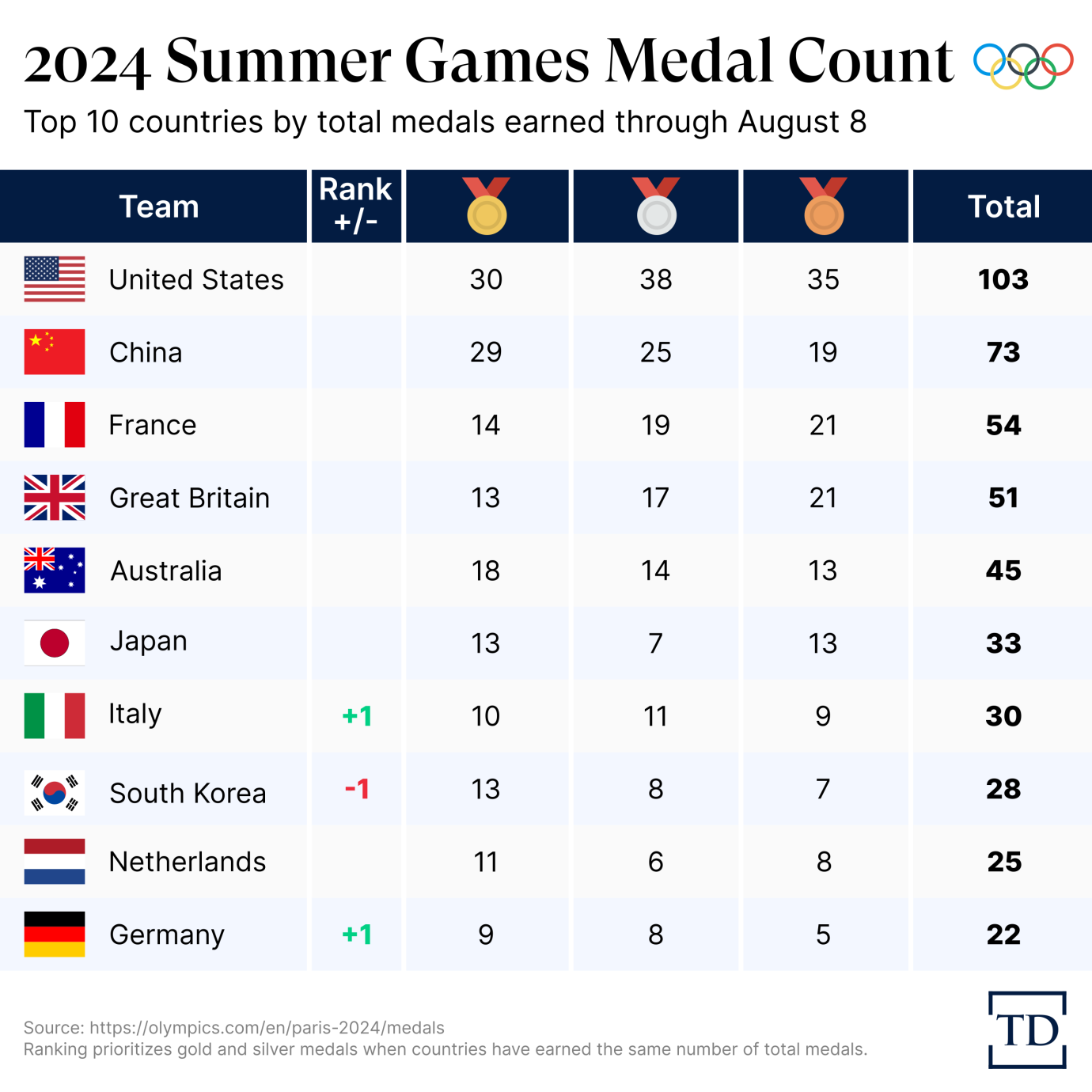
Toeing the Company Line
- In the newsletters: Will unpacked the Google antitrust ruling and Nick explored whether it’s good political strategy for Harris to avoid taking questions from the media.
- On the podcasts: Sarah is joined by Jonah and Megan McArdle on The Dispatch Podcast roundtable to discuss the Tim Walz vice presidential pick and the vitality of conservatism at the state level.
- On the site: Kevin dives into the Minneapolis political culture that forged Tim Walz, Robert George warns conservatives against playing identity politics with Kamala Harris’ veep selection, and Charlie Sykes analyzes what Democratic Rep. Cori Bush’s primary defeat in Missouri means for the far-left.
Let Us Know
Do you think antitrust law should ultimately prioritize the welfare of consumers or of competitors? How would you categorize the recent action against Google?



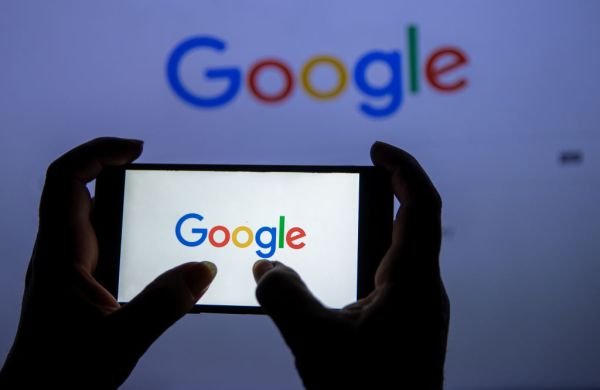
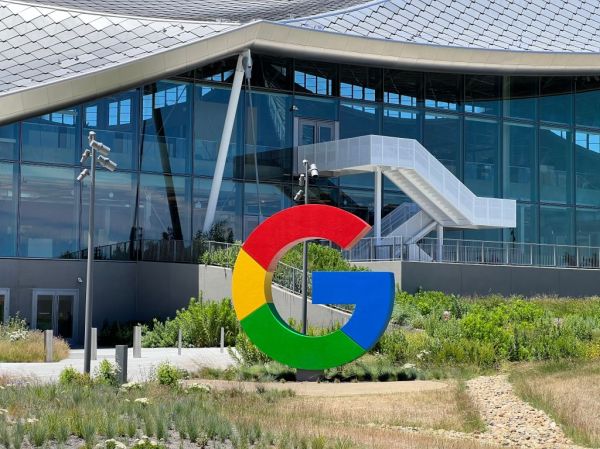
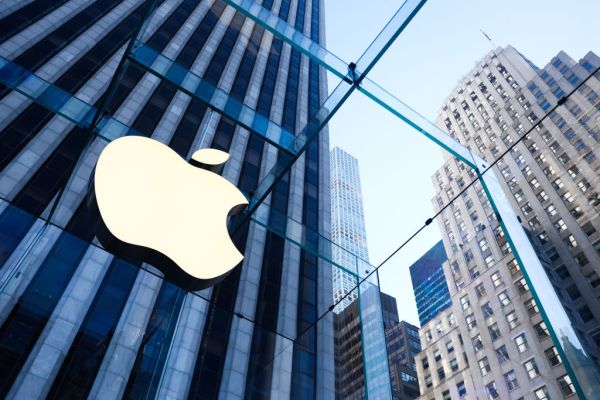



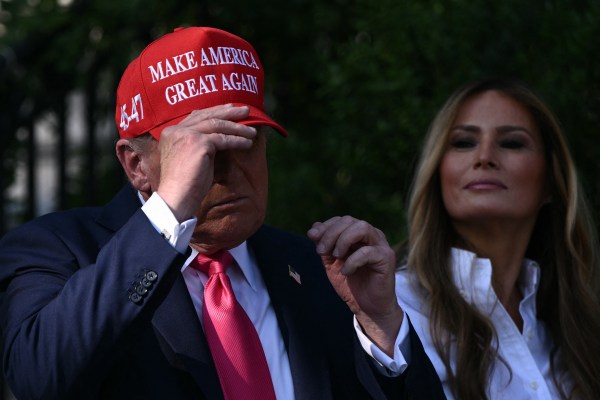

Please note that we at The Dispatch hold ourselves, our work, and our commenters to a higher standard than other places on the internet. We welcome comments that foster genuine debate or discussion—including comments critical of us or our work—but responses that include ad hominem attacks on fellow Dispatch members or are intended to stoke fear and anger may be moderated.
With your membership, you only have the ability to comment on The Morning Dispatch articles. Consider upgrading to join the conversation everywhere.